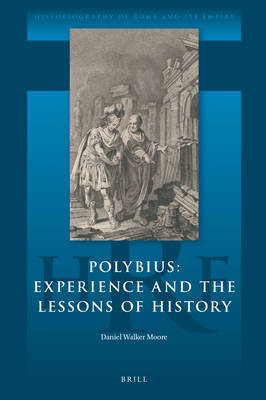
- Afhalen na 1 uur in een winkel met voorraad
- Gratis thuislevering in België vanaf € 30
- Ruim aanbod met 7 miljoen producten
- Afhalen na 1 uur in een winkel met voorraad
- Gratis thuislevering in België vanaf € 30
- Ruim aanbod met 7 miljoen producten
Zoeken
Omschrijving
The Greek historian Polybius (2nd century B.C.E.) produced an authoritative history of Rome's rise to dominance in the Mediterranean that was explicitly designed to convey valuable lessons to future generations. But throughout this history, Polybius repeatedly emphasizes the incomparable value of first-hand, practical experience. In Polybius: Experience and the Lessons of History, Daniel Walker Moore shows how Polybius integrates these two apparently competing concepts in a way that affects not just his educational philosophy but the construction of his historical narrative. The manner in which figures such as Hannibal, Scipio Africanus, or even the Romans as a whole learn and develop over the course of Polybius' narrative becomes a critical factor in Rome's ultimate success.
Specificaties
Betrokkenen
- Auteur(s):
- Uitgeverij:
Inhoud
- Aantal bladzijden:
- 180
- Taal:
- Engels
- Reeks:
- Reeksnummer:
- nr. 6
Eigenschappen
- Productcode (EAN):
- 9789004426115
- Verschijningsdatum:
- 19/03/2020
- Uitvoering:
- Hardcover
- Formaat:
- Genaaid
- Afmetingen:
- 155 mm x 235 mm
- Gewicht:
- 395 g

Alleen bij Standaard Boekhandel
+ 375 punten op je klantenkaart van Standaard Boekhandel
Beoordelingen
We publiceren alleen reviews die voldoen aan de voorwaarden voor reviews. Bekijk onze voorwaarden voor reviews.








